Filter by
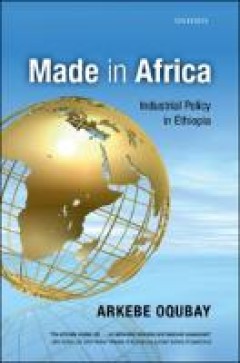
Made in Africa: Industrial Policy in Ethiopia
This book presents the findings of original field research into the design, practice, and varied outcomes of industrial policy in three sectors in Ethiopia, covering export-oriented and import-substitution industries. The three sectors are cement, leather and leather products, and floriculture. Given that there is a single industrial strategy, why do its outcomes vary across sectors? To what ex…
- Edition
- -
- ISBN/ISSN
- 9780198767800
- Collation
- -
- Series Title
- -
- Call Number
- -
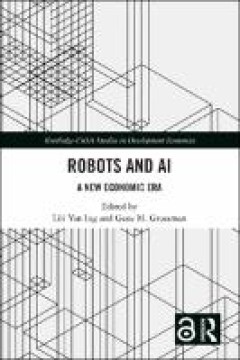
Robots and AI
Robots and artificial intelligence (AI) are powerful forces that will likely have large impacts on the size, direction, and composition of international trade flows. This book discusses how industrial robots, automation, and AI affect international growth, trade, productivity, employment, wages, and welfare. The book explains new approaches on how robots and artificial intelligence affect the w…
- Edition
- -
- ISBN/ISSN
- 9781000626483
- Collation
- -
- Series Title
- -
- Call Number
- -
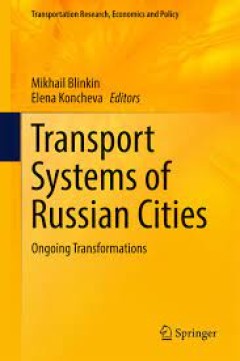
Transport Systems of Russian Cities Ongoing Transformations
This volume discusses post-socialist urban transport functioning and development in Russia, within the context of the country’s recent transition towards a market economy. Over the past twenty-five years, urban transport in Russia has undergone serious transformations, prompted by the transitioning economy. Yet, the lack of readily available statistical data has led to a gap in the inclusion …
- Edition
- -
- ISBN/ISSN
- 978-3-319-47800-5
- Collation
- -
- Series Title
- -
- Call Number
- -
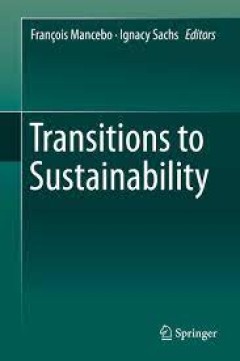
Transitions to Sustainability
This book calls for the conditions of transition to sustainability: How to take into consideration new global phenomena such as and of the dimension of climate change, the depletion of natural resources, financial crises, demographic dynamics, global urbanization, migrations and mobility, while bearing in mind short-term or local place-based issues, such as social justice or quality of life? Me…
- Edition
- -
- ISBN/ISSN
- 978-94-017-9532-6
- Collation
- -
- Series Title
- -
- Call Number
- -

Transition of the Yangtze River Delta From Global Manufacturing Center to Gl…
This is the first English book that presents a professional analysis of the recent dynamic movement of the Chinese economy by focusing on the Yangtze River Delta region, which is the main engine of the Chinese economy. The impact of the international financial crisis on China’s economic development requires a change from the first wave of economic globalization oriented toward exports to the …
- Edition
- -
- ISBN/ISSN
- 978-4-431-55178-2
- Collation
- -
- Series Title
- -
- Call Number
- -

Transforming Payment Systems in Europe
The European payment market has undergone rapid transformation in recent years due to changes in payment habits, new business rules and new legal frameworks and regulation. There has also been an advent of new technologies and payment solutions which has altered the European payments landscape drastically. This book provides an overview of the fundamental issues involved in this new payments…
- Edition
- -
- ISBN/ISSN
- 978-1-137-54121-5
- Collation
- -
- Series Title
- -
- Call Number
- -
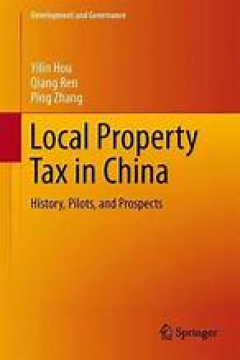
The Property Tax in China
This monograph offers a detailed analysis of the creation, pilot implementation, and possible wide adoption of the real property tax at the local level in China. Starting in 2003, as China’s economy gradually recovered from the Asian financial crisis that started in 1998, the real property market entered a period of rapid expansion, followed immediately by rampant speculation, rising housing …
- Edition
- 1
- ISBN/ISSN
- 978-3-319-10049-4
- Collation
- XVII, 186, 39 illustrations in colour
- Series Title
- Development and Governance
- Call Number
- -

Trade Strategy in East Asia From Regionalization to Regionalism
The study of regionalism is essential as it has become a vital trend with profound regional and global impacts. Japan, Korea and China are regarded as the key actors for such action in East Asia. While regionalization has created building blocks for economic integration, the act of exclusion from regionalism will only lead to marginalization. Therefore, it is important to learn how to make it w…
- Edition
- -
- ISBN/ISSN
- 978-1-137-56967-7
- Collation
- -
- Series Title
- -
- Call Number
- -

Data Quality in Southeast Asia : Analysis of Official Statistics and Their In…
This book explores the reliability of official statistical data in the ASEAN (the Association of Southeast Asian Nations), and the benefits of a better vocabulary to discuss the quality of publicly available data to address the needs of all users. It introduces a rigorous method to disaggregate and rate data quality into principal factors containing a total of ten dimensions, which serves as th…
- Edition
- -
- ISBN/ISSN
- 9781137600639
- Collation
- XXIV, 196 pages
- Series Title
- -
- Call Number
- 338.9
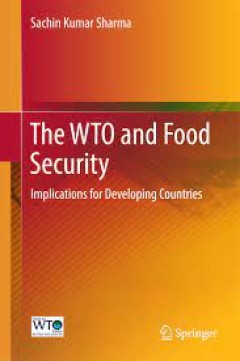
The WTO and Food Security Implications for Developing Countries
This book examines the public stockholding policies of selected developing countries from the perspective of WTO rules and assesses whether the provisions of the Agreement on Agriculture (AoA) could hamper these countries’ efforts to address the challenges of food security. Further, it highlights the need to amend the provisions of the AoA to make WTO rules just and fair for the millions of p…
- Edition
- -
- ISBN/ISSN
- 978-981-10-2179-4
- Collation
- -
- Series Title
- -
- Call Number
- -
 Computer Science, Information & General Works
Computer Science, Information & General Works  Philosophy & Psychology
Philosophy & Psychology  Religion
Religion  Social Sciences
Social Sciences  Language
Language  Pure Science
Pure Science  Applied Sciences
Applied Sciences  Art & Recreation
Art & Recreation  Literature
Literature  History & Geography
History & Geography